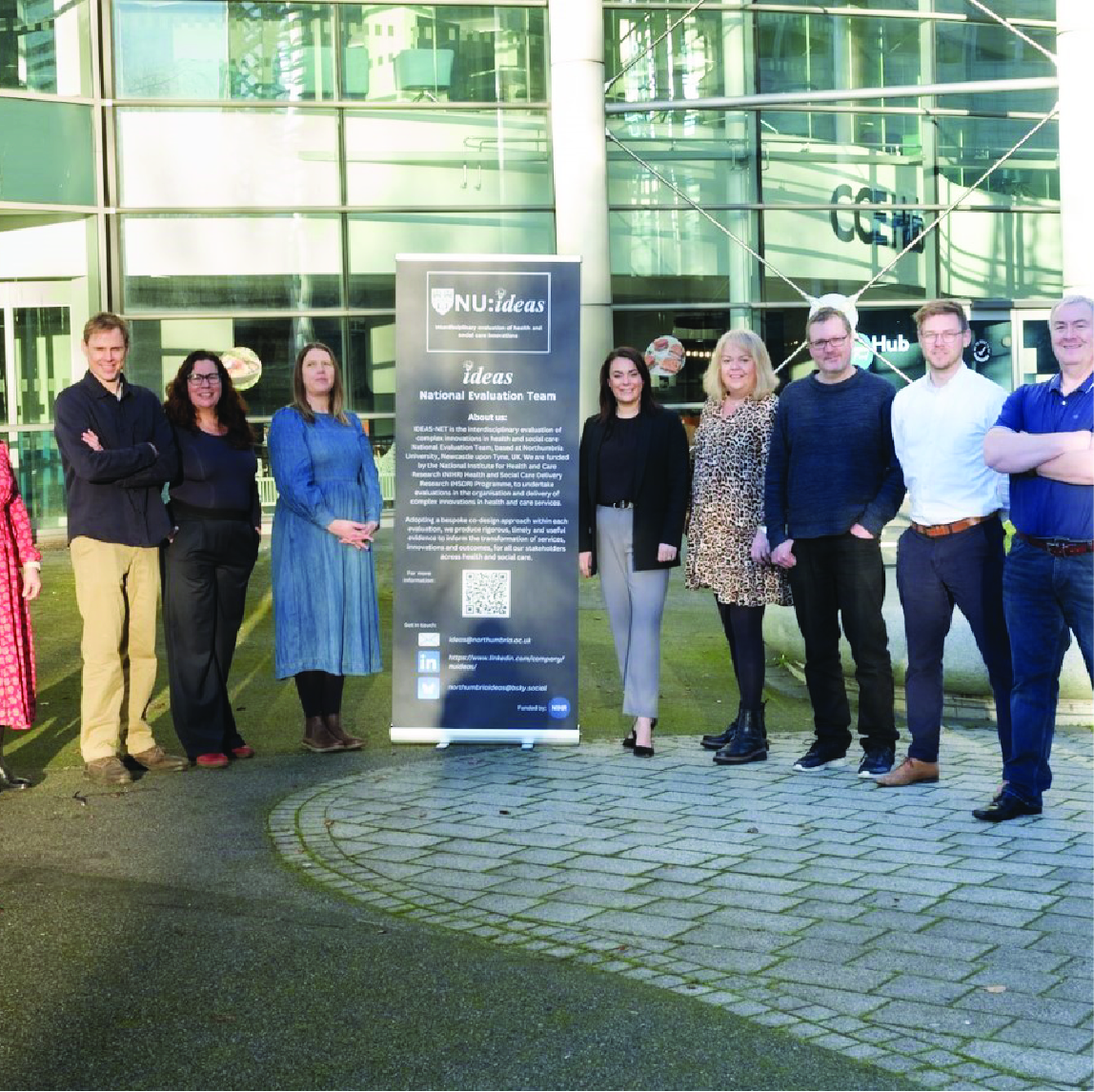-
Study
-
Quick Links
- Course Search
- Unlock Your Potential
- Still time to Apply
- Higher and Degree Apprenticeships
- Continuing Professional Development
- Still time to apply
-
Undergraduate
- Course Search
- Application Guides
- UCAS Exhibitions
- Foundation Years
- Fees and Funding
- School & College Outreach
- Information for Parents
-
Postgraduate
- Course Search
- Application Guide
- Postgraduate Research Degrees
- Flexible Learning
- Fees and Funding
- Change Direction
- Register your Interest
-
Student Life
- Students' Union
- The Hub - Student Blog
- Accommodation
- Northumbria Sport
- Support for Students
-
Experience Northumbria
- Open Days & Events
- Virtual Tours
- Campus Tours
- Life in Newcastle
-
-
International
International
Northumbria’s global footprint touches every continent across the world, through our global partnerships across 17 institutions in 10 countries, to our 277,000 strong alumni community and 150 recruitment partners – we prepare our students for the challenges of tomorrow. Discover more about how to join Northumbria’s global family or our partnerships.
View our Global Footprint-
Quick Links
- Course Search
- Undergraduate Study
- Postgraduate Study
- Information for Parents
- London Campus
- Northumbria Pathway
- Sign up for Information
-
International Students
- Information for Students
- International Events
- Application Guide
- Entry Requirements and Education Country Agents
- Global Offices
- English Requirements
- English Language Centre
- International student support
-
International Fees and Funding
- International Undergraduate Fees
- International Undergraduate Funding
- International Masters Fees
- International Masters Funding
- International Postgraduate Research Fees
- International Postgraduate Research Funding
-
International Partners
- Agent and Representative Network
- Global Partnerships
- Global Community
-
International Mobility
- Information for Northumbria Students
- Information for Incoming Exchange Students
-
-
Business
Business
The world is changing faster than ever before. The future is there to be won by organisations who find ways to turn today's possibilities into tomorrows competitive edge. In a connected world, collaboration can be the key to success.
More on our Business Services -
Research
Research
Northumbria is a research-rich, business-focused, professional university with a global reputation for academic quality. We conduct ground-breaking research that is responsive to the science & technology, health & well being, economic and social and arts & cultural needs for the communities
Discover more about our Research -
About Us
-
About Northumbria
- Our Strategy
- Our Staff
- Place and Partnerships
- Leadership & Governance
- Academic Departments
- University Services
- History of Northumbria
- Contact us
- Online Shop
-
-
Alumni
Alumni
Northumbria University is renowned for the calibre of its business-ready graduates. Our alumni network has over 246,000 graduates based in 178 countries worldwide in a range of sectors, our alumni are making a real impact on the world.
Our Alumni - Work For Us
What will I learn on this module?
In this module you explore the role of engineering interventions to address the current Climate Emergency, to protect air, land and water from degradation and to design resilient solutions to achieve Net Zero greenhouse gas emissions. A broad subject is distilled down to key topics in the field of environmental engineering, such as: environmental impact assessment; environmental risk assessment; water supply engineering; wastewater management; and solid waste management. Through this exploration, you will grow to appreciate the relationships between environmental management and sustainability. On completion of the module, you have an understanding of how environmental engineering theory and application will serve to enhance your future employment prospects in the civil engineering industry and more widely.
How will I learn on this module?
The module will include a range of learning materials such as presentations, notes, workshop questions for you to answer, and other resources such as video links, spreadsheets and specific software-related files. All these resources will be arranged in a convenient learning journey, giving you a clear expectation of the material to be studied and tasks to be completed on a week-by-week basis. You will be expected to complete the appropriate tasks in your weekly journey before either attending classes or taking part in online sessions. You will take part in lectures to develop your knowledge and understanding of the module material and in workshops, where you will learn to apply the concepts learned to civil engineering problems. You will also participate in workshop sessions, where you will discuss the module material and coursework tasks with your tutors and with other students and exercise creativity in developing design solutions. There may be occasions within the semester where normal teaching will be suspended to allow your learning to be supplemented by a range of activities such as design workshops, guest presentations, professional body events, site visits and field work.
How will I be supported academically on this module?
You will be supported by staff in workshops, giving you ample opportunity to ask questions to clarify and deepen your understanding of the module material, as well as to seek specific help, for example with assessment tasks. At other times, you will have regular access to University academic staff online, including the use of discussion boards and chat rooms in the University’s virtual learning environment (VLE). This will allow you to access support regularly at convenient times.
The module and the wider programme teams will also provide a supportive approach, enabling you to quickly and easily access and speak to any member of the programme team, as required.
The University Library and other student services also offer a variety of academic skills training both online and face to face, which you can access as needed.
What will I be expected to read on this module?
All modules at Northumbria include a range of reading materials that students are expected to engage with. Online reading lists (provided after enrolment) give you access to your reading material for your modules. The Library works in partnership with your module tutors to ensure you have access to the material that you need.
What will I be expected to achieve?
Knowledge and Understanding:
1. Evaluate examples of engineering interventions to improve environmental quality and public health in developed and developing nations.
2. Critique engineering techniques employed for common environmental engineering tasks such as water treatment and the remediation of contaminated land.
Intellectual/Professional Skills and Abilities:
3. Evaluate possible solutions to problems in environmental engineering including relevant ethical considerations.
How will I be assessed?
You will be assessed by means of two coursework tasks.
The first will be an individual report of maximum length 2500 words, weighted at 30% of the module marks and will assess MLOs 1 and 2 in part. The second will be an identified individual contribution to a group design report of maximum length 3500 words (for the individual contribution) and will assess MLOs 2 in part and 3. This will be weighted at 70% of the module marks. Group members will need to document agreement of individual contributions to group activity to be of equal difficulty and value.
However, the course works include both individual and group components, with the individual component accounting for at least 50% of the module's marks.
Pre-requisite(s)
None
Co-requisite(s)
None
Module abstract
Environmental Engineering is about applying engineering knowledge and techniques to address the current Climate Emergency, promote Net Zero greenhouse gas emissions, prevent degradation and promote enhancement of the natural environment. In class, we discuss key the issues of the topic with examples taken from historical and contemporary practice and set against the enormous challenge of the Climate Emergency. The coursework assessment then allows you to conduct independent research and focus your thinking on the environmental impacts, positive and negative, of a specific task related to a real civil engineering project.
Course info
UCAS Code H200
Credits 20
Level of Study Undergraduate
Mode of Study 3 years Full Time or 4 years with a placement (sandwich)/study abroad
Department Mechanical and Construction Engineering
Location City Campus, Northumbria University
City Newcastle
Start September 2025 or September 2026
All information is accurate at the time of sharing.
Full time Courses are primarily delivered via on-campus face to face learning but could include elements of online learning. Most courses run as planned and as promoted on our website and via our marketing materials, but if there are any substantial changes (as determined by the Competition and Markets Authority) to a course or there is the potential that course may be withdrawn, we will notify all affected applicants as soon as possible with advice and guidance regarding their options. It is also important to be aware that optional modules listed on course pages may be subject to change depending on uptake numbers each year.
Contact time is subject to increase or decrease in line with possible restrictions imposed by the government or the University in the interest of maintaining the health and safety and wellbeing of students, staff, and visitors if this is deemed necessary in future.
Useful Links
Find out about our distinctive approach at
www.northumbria.ac.uk/exp
Admissions Terms and Conditions
northumbria.ac.uk/terms
Fees and Funding
northumbria.ac.uk/fees
Admissions Policy
northumbria.ac.uk/adpolicy
Admissions Complaints Policy
northumbria.ac.uk/complaints









